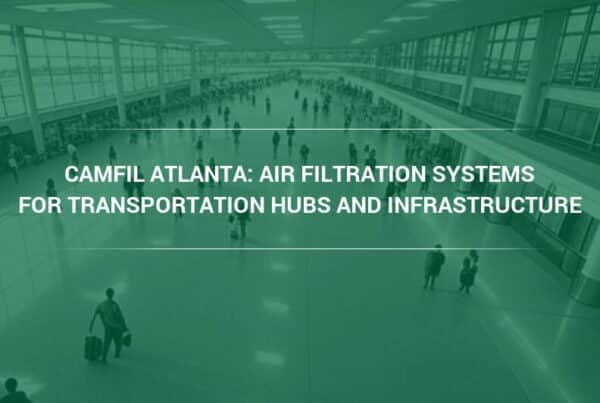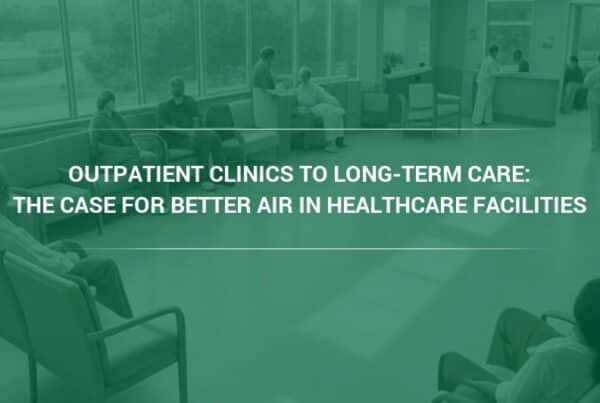Indoor Air Pollution One of Top Five Environmental Risks.
With the advance of air quality monitoring technology, the real risk of indoor air quality issues is worse than previously thought. Selecting the proper HVAC system filter and maintaining it is the first line of defense.
While the concept of indoor air quality (IAQ) is not new to environmental researchers, it has recently come back under the microscope as researchers are trying to uncover the full extent of the threat it poses to human health.
According to a growing body of research from the Environmental Protection Agency (EPA), IAQ is not only a threat to keep an eye on, but it is actually one of the top five environmental risks that human beings face on a daily basis.
For businesses, schools, and residences alike, following EPA recommendations for furnace filter replacement, as well as overall HVAC system maintenance, is essential in reducing the threat of indoor pollutants.
What the EPA Learned About Indoor Air Pollution
The EPA, as well as a number of private environmental research agencies, have been gathering data for decades about the role of airborne pollutants on human health. Only recently have they been able to uncover some of the mystery surrounding indoor air pollutants.
“Air quality monitoring technology has come a long, long way in the last few years,” says Mark Davidson, Manager of Marketing and Technical Materials at Camfil USA. “With improved technology, researchers are finding pollutants like formaldehyde, asbestos, radon, and even pesticides in higher levels than ever before. What this suggests is that the real threat of IAQ might be worse than we thought.”
Re-Defining the Truth About Home Air Filters & Commercial Air Filters
In an effort to expand the public’s awareness of IAQ and indoor air quality management, the EPA along with the Science Advisory Board have released The Indoor Air Quality Tools for Schools Approach, describing how indoor pollutants pose a direct threat to school children across the country. It also includes a number of actionable solutions for reversing the dangerous trends currently present in IAQ.
Related:
Ventilation Becomes a Top Priority as NJ Officials Move to Reopen Schools This Fall
In fact, nearly half of schools across the United States are reported to have issues with indoor air quality. In children who are under the age of 15, even light amounts of indoor air pollution can be enough to trigger respiratory conditions like asthma. And that’s not all.
Higher levels of indoor pollutants have been linked to the following chronic symptoms:
- Fatigue
- Headaches
- Sneezing
- Coughing
- Nausea
- Dizziness
- Congestion
- Nose, eye, or throat irritation
The truth about high performance air filters is they can reduce the amount of airborne pollutants in homes, schools, and businesses when they are properly installed, maintained and replaced when appropriate.
Protecting IAQ Fiberglass Furnace Filters vs. Pleated Air Filters
As Davidson suggested, the real threat of indoor air quality problems has been severely underestimated until very recently, forcing researchers, consumers, and air quality experts scrambling to play catch up. As more and more people become aware of the health risks, they are starting to ask important questions about the state of their air filtration systems.
“Most people, businesses and home consumers alike, are having another look at their HVAC systems” Davidson continues. “They want to understand terms like pressure drop, CFM (cubic feet per minute), ACH (air changes per hour), and even things like fiberglass furnace filters vs. pleated air filters. It’s essential more people take control of their own indoor air quality.”
For schools and businesses looking to quickly address their potential IAQ problems, choosing the right HVAC air filters for their system is an absolute necessity. Questions like what is the maximum depth filter the system can handle, what is the rated CFM of the unit and are there specific pollutants that need to be controlled, are all questions that need to be answered to determine proper air filter selection.
RELATED:
Why Are High Efficiency Furnace Filters Important in Your Home?
Having Another Look at Indoor Air Quality Management
While details of HVAC system operation are perhaps better left to the experts, there is a lot people can do to increase their awareness of potential IAQ problems. Owners and managers have more options than ever when it comes to detailed, data-based indoor air quality monitoring.
Knowing the specific pollutants present in your building’s indoor air is the first step in developing an effective strategy to mitigate it. The air quality experts at Camfil USA are highly experienced in the design, execution, and maintenance of professional air filtration systems. The Camfil website is an excellent resource for researching air filters or simply wanting to learn more about air quality solutions.



